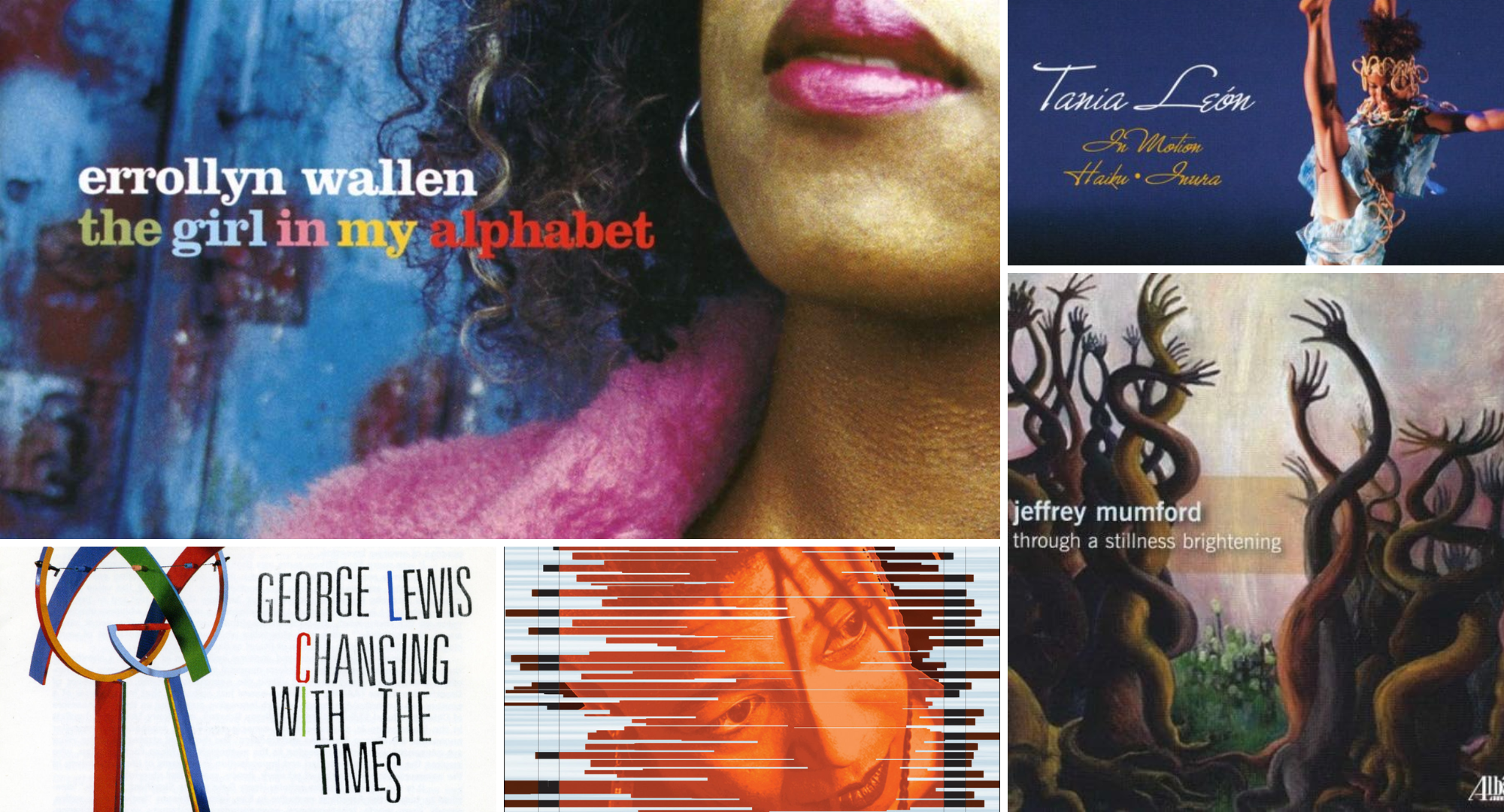It’s the first week of Black History Month. It’s also the third week of the Trump presidency, and federal DEI initiatives have been obliterated. This includes DEI initiatives in federal granting, which heavily includes the arts. Did you know State Arts Agencies receive a large portion of their funds from the National Endowment for the Arts (NEA)? I don’t want to go on too much about what is happening, but I do want to say this (I am ripping this from something I saw on LinkedIn): DEI exists to ensure everyone who is qualified can be heard. Having initiatives to ensure people are included equitably attempts to even a grossly skewed playing field.
And with that, let’s listen to seven Black composers with long legacies that we all absolutely should have heard about in school, but did not. (If you did, AWESOME).
I give this playlist a Difficult Listening Hour rating of 6/10.
To have these playlists delivered to your inbox every week, sign up for my newsletter.
- in our lifetime (for baritone and tape) by Errollyn Wallen performed by Michael Henry. Alum: The girl in my alphabet. All I can find about this work is that it is a tribute to Nelson Mandela, so here is a short bio on the composer herself, “Errollyn Wallen is one of Britain’s most exciting and inventive composers, “bright, funky, irreducible”, according to What’s On. Also a pianist and singer/songwriter of great depth and originality, her theatrical music is a brilliant fusion of the traditions and forms of classical, popular and jazz. Her music has been performed in Europe, the United States, South America, Africa and Australia, alongside such notable musicians as Evelyn Glennie and Emanuel Ax. Errollyn’s Avie debut is a perfect representation of her motto: “I don’t break down barriers in music because I don’t see any”.”
- Stay on It by Julius Eastman performed by Wild Up. This work is a wild ride. Julius Eastman, in my opinion, wrote the epitome of genre-less music. Julius was a gay Black man in New York in the 70s, 80s, and 90s. His expressions of his experience were ill received, most notably his works Gay Guerrilla and Nigger Faggot. Julius passed away from AIDS in 1990 and only posthumously has he started to receive the recognition he undoubtedly deserved during his life. To learn more about this composer, I suggest watching his episode of Sounds Good.
3 & 4. two rhapsodies for cello & strings by Jeffrey Mumford performed by Julia Bruskin, cello; National Gallery Chamber Players. Album: through a stillness brightening. I cannot find anything about this piece, only that it is a live recording. I can easily say Jeffrey Mumford is a new favorite composer of mine. This entire album hits so many yes buttons for me. Here is a full review and backstory on the album, written by Mike Telin.
5. In Tymes of Olde by Pamela Z. Album: A Delay is Better. She has her tech rider on the front page of her website and I cannot be more impressed. She is a composer and multi-media artist, and I will admit, I don’t often run to her albums because I would much rather SEE and hear her perform (which, sadly, I have not). A Delay is Better is one of only three studio albums she has released. “In Tymes of Olde is a song sung in English over a delay loop that increases in complexity as vocal layers are gradually added to its texture.” -Program Note. If you end up picking up this album, I recommend skipping to Badagada as its my second favorite track.
6. The View from Skates in Berkley by George E. Lewis. Album: Changing With The Times. George E. Lewis is one of the GOATs when it comes to early computer music. He is also an accomplished trombonist and his first degree was in Philosophy. He currently sits as the Artistic Director of the International Contemporary Ensemble. If I ever start a book club, his will be a must-read.
7. Antifonys: For String Orchestra by George Walker performed by Sinfonia de Camara. Album: George Walker: Great American Orchestral Works, Vol. 4. Unfortunately, I can’t find anything about this work. I would personally love to know more. Please note that the YouTube playlist has the version for Chamber Orchestra. George Walker was the first Black composer to have won the Pulitzer Prize for Music. He graduated from high school at 14 and Oberlin College at 18. He went on to become the first Black graduate of the Curtis Institute of Music. According to the Atlanta Symphony Orchestra’s website, “George Walker has composed over 90 works for orchestra, chamber orchestra, piano, strings, voice, organ, clarinet, guitar, brass, woodwinds, and chorus. His works have been performed by virtually every major orchestra in the United States and by many in England and other countries. His awards include the Harvey Gaul Prize, MacDowell Colony, Yaddo and Bennington Composer Conference Fellowships, two Guggenheim Fellowships, two Rockefeller Fellowships, a Fromm Foundation commission, two Koussevitsky Awards, an American Academy of Arts and Letters Award, a Mary Flagler Cary Charitable Trust Award, the Mason Gross Memorial Award, numerous grants from the Research Councils of Smith College…” The list is much longer.
8. Haiku by Tania León performed by Ranjoe Darby (narrator), Harlem Ensemble, Son Sonora Voices, Sonora Ensemble. Album: In Motion. It is important to remember that this work is a Ballet. “Tania León was born and raised in Cuba but her ancestry spans Europe, Africa, and Asia as well as the Americas. In the music she has been composing for the past four decades, she has absorbed all of these influences and transformed them into a vibrant synergistic totality that foreshadows the omnivorous polystylism of the early 21st century. … Haiku, created during León’s tenure as composer-in-residence and music director for the Dance Theatre of Harlem, is an aphoristic and almost otherworldly re-imagining of seventeen classical Japanese haiku poems, which somehow form a cohesive and unified whole.”

